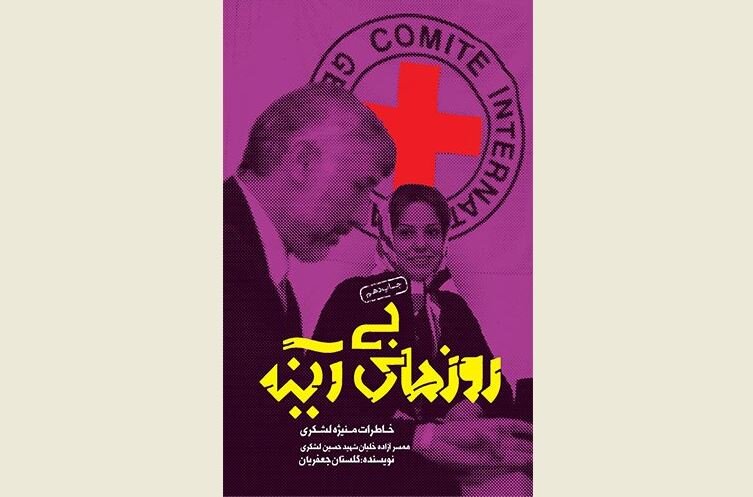Mirrorless Days

The memories of Manije Lashkari, Hussain Lashkari's wife, who spent eighteen years of his life in captivity by Saddam's army, are included in the book "Mirrorless Days" by Golestan Jafarian, which has been recently released by Soore Mehr publication.
* Does this book have more of an oral history or memoirs basis?
I believe that this work is more based on memories than oral history. The narrator is questioned without intervening, and after a quick edit, the response is collected and published. If I had wanted to work on every one of those interviews, based on oral history, the book's size would be much larger.
* Does your preference for fiction literature imply that you make changes to the text?
No, I did not at all use my imagination when I was writing this book; instead, it is entirely grounded in reality. I believe that the ability to arrange thirty hours of interview in the shape of literature is crucial for narrative. Therefore, the memory must be capable of containing the structure of literature and storytelling.
* How did you determine that 30 hours of interviewing was sufficient and that you have the best possible collection of the narrator memories?
I came across a woman who was experiencing numerous mental crises. It would be quite challenging for me to finish the book if I wanted to cover many of the other subjects stated in it. The point is that it was such a miracle that Mrs. Lashkari agreed to be interviewed and to write down her memories.
* How did you manage to get in touch with her and win her trust?
She immediately communicated after she saw how much I respected her. I thought that she understood my situation and helped me because I held this woman's suffering in such high regard and because I was modest in front of her.
* What fresh experience have you gained in this area?
For my earlier books, I had spoken with people who had a fighter's mindset. The conversation becomes more than just a memoir when you are dealing with someone like them. The goal of understanding a woman's and a person's mind who finds themselves in challenging circumstances. I prefer to approach these people and give them the chance to express themselves. Before I had long since realized this, I wished to help those who believed that, while martyrdom is not a disaster, it would still mean losing loved ones, and martyrdom is not very beautiful.
* Which time period in the life of the main character did you find most important in this book?
I found each chapter in this book to be unique, and I didn't intentionally choose to spotlight any one portion of her life. Every section of the novel, in my opinion, has its own world. Because of this, I claim that this is solely Manijeh's life. If there was any emphasis in some places, it came from Mrs. Lashkari. If you want to know the part that amazed me personally and I enjoyed it, I would have to say Hussein being let free.
* Could she possibly share any other memories, or is that it?
I believe Mrs. Lashkari is still unsure of why she consented to the publication of her memories. It also depends on how the book is received; if she gets nice reviews to calm her, she is likely to be ready to even do a documentary and a movie.
Leave a Comment